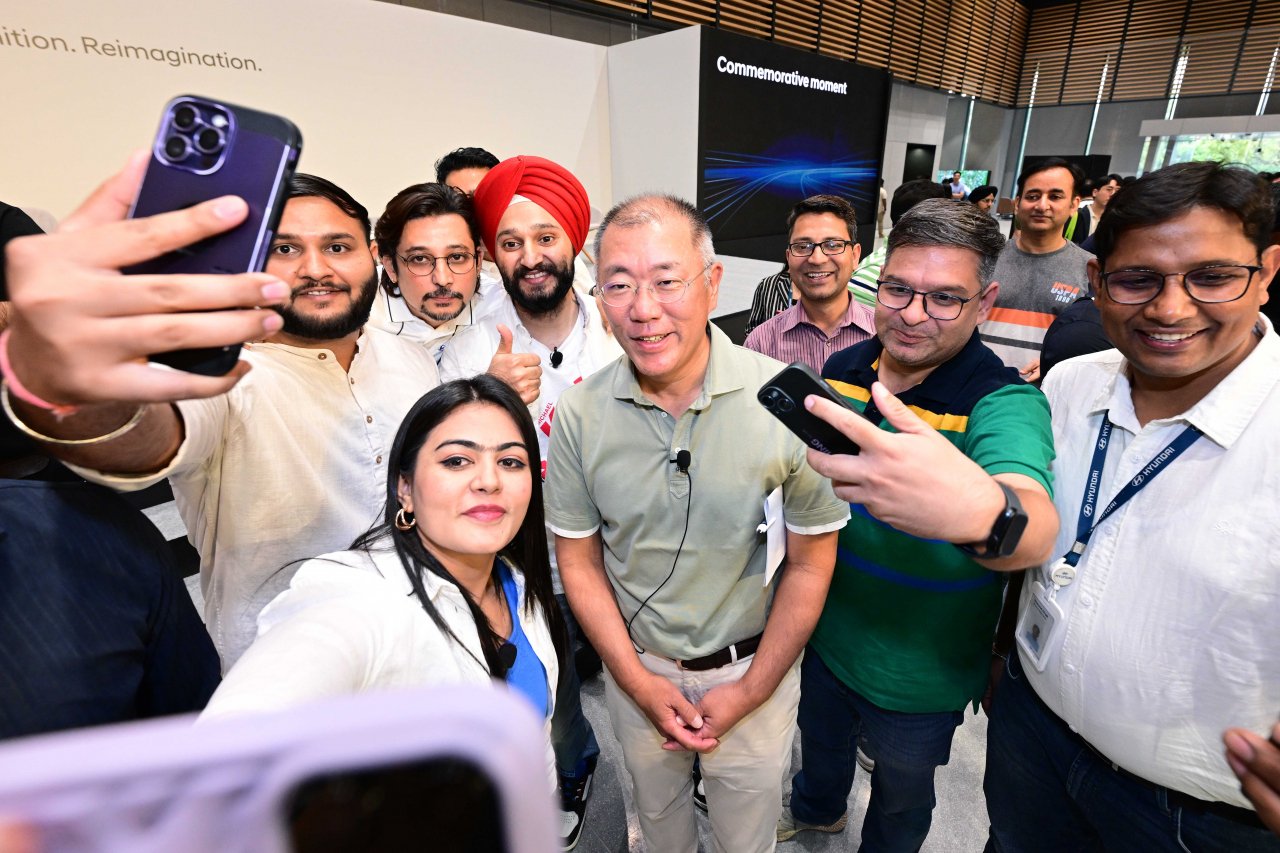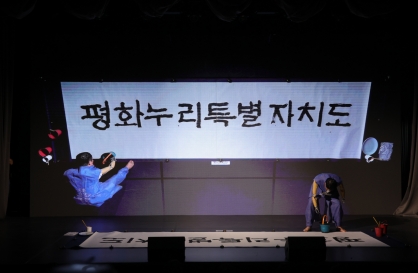[Hello India] Hyundai Motor vows to boost 'clean mobility' in India
Chung Euisun holds 1st town hall meeting overseas; highlights India’s strategic importance for expanding EV market, infrastructure
By Kan Hyeong-wooPublished : April 25, 2024 - 15:53

Hyundai Motor Group has reiterated the importance of India and reaffirmed its commitment to the burgeoning market as its chief visited the world’s most populous country earlier this week.
“India, one of the regions that has contributed the most to the growth of Hyundai Motor Group, has overcome many difficulties such as the global economic recession and supply chain crisis during the COVID-19 pandemic period and continuously came up with good performances,” said Hyundai Motor Group Executive Chair Chung Euisun in what the company called a "town hall meeting" with about 400 Indian employees at the auto conglomerate’s local headquarters in Gurgaon on Tuesday.
“We will grow India as a global export hub as we expand business to Asia, the Middle East and Africa. Considering the importance of the Indian region, we will provide utmost support so that it can play a bigger role moving forward.”
The town hall meeting marked the chief’s first visit to India since August last year. According to Hyundai Motor, Chung proposed the idea of having a town hall meeting in India. It was his first such meeting overseas consisting of Chung answering questions from the audience, reflecting the significance of India for the Korean auto giant.
As India is expected to continue its economic growth, its auto market is forecast to keep getting bigger. The country’s passenger car market is projected to reach over 5 million units in 2030 after hitting 4.1 million units last year.
Hyundai Motor Group’s two auto brands -- Hyundai Motor Company and Kia -- are expanding their local production capacity in India with the aim to have an annual production capacity of 1.5 million vehicles by the second half of next year.
As of last year, Hyundai Motor Group had accumulated sales of 8.24 million vehicles in India since entering the market in 1996. The automaker sold 857,111 cars in India last year alone.
In accordance with the Indian government’s plan to expand the proportion of electric vehicles to 30 percent of all vehicles sold by 2030, the Korean automaker is going all out to lead the country EV transition.
“We will play an active role in automation by developing EVs specifically designed for the Indian market and expanding EV infrastructure,” said Chung.
“(Hyundai Motor Group) will lead India’s clean mobility through 2030 when EV supply gets in full swing.”
Hyundai Motor Company plans to launch the first locally-produced EV in India in the second half of this year with a bigger picture to release five EV models in the local market by 2030. Using its dealer network, the company has vowed to expand the number of EV charging stations to 485 by 2030. Kia will also produce a small EV, which will be optimized for the local market, in 2025 and bring in various EVs afterward.
“The most important social role and responsibilities of Hyundai Motor Group moving forward with the Indian nationals are to safely connect individuals through our products and services and improve the quality of life,” said Chung.
“On top of that, we will continue to come up with social contribution programs that can support various social classes in India and keep pushing for transitioning into eco-friendly mobility for future generations.”
The automaker established the Hyundai Motor India Foundation in 2006. The HMIF has carried out various social contribution activities such as planting 80,000 trees, turning used factory equipment into chairs and desks through upcycling, and operating transportable clinics and libraries.






![[Graphic News] Number of coffee franchises in S. Korea rises 13%](http://res.heraldm.com/phpwas/restmb_idxmake.php?idx=644&simg=/content/image/2024/05/02/20240502050817_0.gif&u=)




![[Robert J. Fouser] AI changes rationale for learning languages](http://res.heraldm.com/phpwas/restmb_idxmake.php?idx=644&simg=/content/image/2024/05/02/20240502050811_0.jpg&u=)






![[Eye Interview] 'If you live to 100, you might as well be happy,' says 88-year-old bestselling essayist](http://res.heraldm.com/phpwas/restmb_idxmake.php?idx=652&simg=/content/image/2024/05/03/20240503050674_0.jpg&u=)
